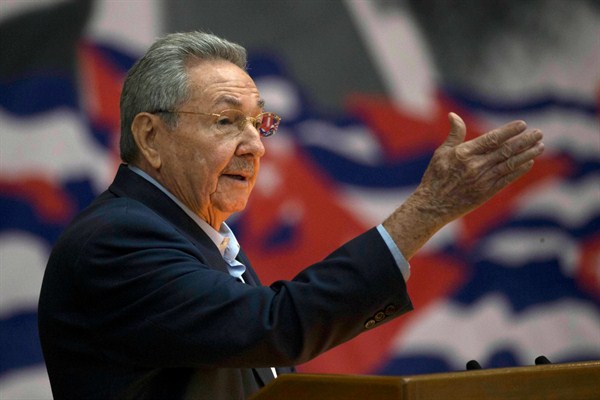Shock waves from Venezuela’s precipitous economic collapse have finally reached Cuba. They are forcing drastic cuts in energy consumption, slashing economic growth from 4 percent last year to just 1 percent in 2016, and raising fears of another “Special Period”—the catastrophic economic decline in the 1990s that followed the collapse of Cuba’s previous patron, the Soviet Union.
Cuba’s predicament was foreshadowed by the plunging price of oil on the world market and Venezuela’s declining production, down 12 percent in the past year alone. Nevertheless, for several years Venezuela continued to meet its obligation to ship some 80,000 to 90,000 barrels of oil daily to Cuba at subsidized prices in exchange for the services of some 40,000 Cuban medical and educational professionals. Cuba resold some of the Venezuelan oil on the world market for a tidy hard currency profit—the same arrangement Cuba had with the Soviet Union in the 1980s. Now, however, the inevitable has come to pass: Venezuelan oil shipments to Cuba are declining, down 20 percent this year, impacting both Cuba’s domestic energy supply and its hard currency reserves.
In his speech to the National Assembly in July, President Raul Castro acknowledged the economic slowdown precipitated by the energy shortage. He urged everyone to conserve resources and “reduce expenses of all kinds that are not indispensable.” Despite the looming austerity, he promised that social services would not be reduced and that the process of economic reform known in Cuba as the “updating” of the social and economic model would continue apace. Moreover, Castro tried to reassure people that Cuba’s current economic problems were not the leading edge of “a return to . . . the Special Period.” There were difficulties, and they might even get worse, he admitted, “but we are prepared, and in a better condition to turn them around.”

